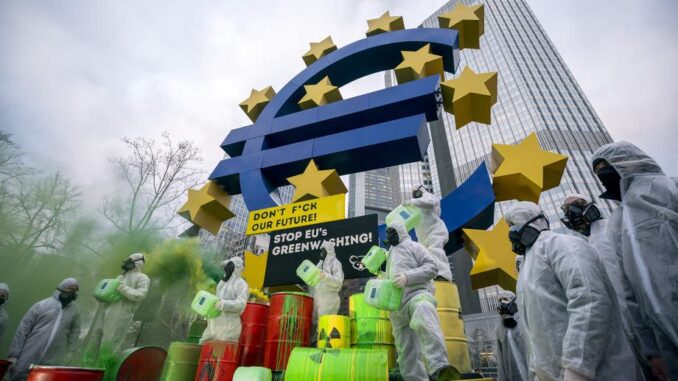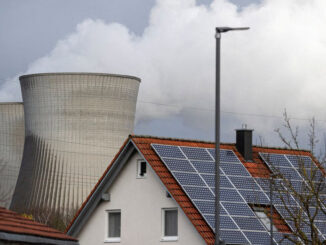
The European Parliament on Wednesday rejected a motion to veto a controversial new EU law that labels natural gas and nuclear power plants as climate-friendly investments, making them eligible for billions of euros in funds and subsidies.
The law to include specific nuclear and gas energy activities in the list of environmentally sustainable economic activities, seen by the European Commission as key to solving the continent’s energy crisis and meeting the EU’s climate and energy targets for 2030, has been dogged by controversy since it was first proposed.
A sign of this was that today’s motion to oppose the inclusion of nuclear and gas as environmentally sustainable economic activities gained the approval of 278 lawmakers. 328 were against the motion and 33 abstained. The motion required 353 votes, a majority of the parliament’s 705 MEPs.
Environmental groups criticized the plan for its “greenwashing” of fossil fuels and nuclear energy, while it met with strong resistance from member states like Germany, which has been phasing out its nuclear power plants, and others who fear it will only aid Russia’s gas industry at a time when the continent is trying to wean itself off Russian energy supplies.
However, the plan received vocal backing from nuclear-supporting countries like Czechia, France, Hungary, Poland, Romania, Slovakia and Slovenia – all of whom sent a letter last year to the Commission arguing vehemently for the inclusion of the low-carbon emitting nuclear energy to the EU’s so-called green “taxonomy”.
“A one-year-old lobby push by seven member states to include nuclear power in the list of climate-friendly energy sources crawled very much under the radar [and] the letter remains to this day unexamined by journalists and academics alike, despite being widely reported on by news outlets at the time of its release,” says Christiana Mauro of the Institut Biosphère. “The letter includes a number of unverified statements designed to sway the Commission in favour of nuclear and influence the EU’s energy policy for decades to come.”
If the EU Council does not object to the proposal by July 11, the Taxonomy Delegated Act will enter into force and apply as of January 1, 2023.
Source: Balkaninsight.com



